War & Conflict Archive
Free Newsletter
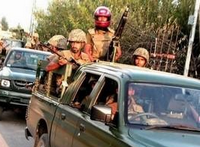
Many observers today view Pakistan much as they do neighboring Afghanistan: primarily in terms of terrorists and the Taliban. Yet, despite their lethality, these groups have so far remained largely limited to Pakistan’s periphery — an area of historical neglect with little consequence for the upper echelons of state power. In contrast, attention paid to the rest of Pakistan, where the vast majority of Pakistanis reside, has been sparser. This skewed focus makes it difficult to fully grasp the challenges driving insecurity in Pakistan. In fact, despite the dire depictions, no tribal insurgency can defeat Pakistan’s army and overthrow the […]
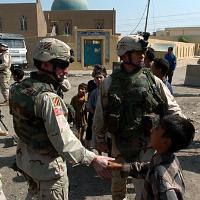
What future does the United States Army face? During eight years of operations in Iraq and 10 years in Afghanistan, the Army has shifted from being a force focused on high-intensity conventional operations to one more comfortable fighting a dispersed enemy intermingled with the population. However, operations are winding down in Iraq, and an endpoint seems to be nearing in Afghanistan. Armed with the collective experience developed in the War on Terror, how will the Army move forward to face new challenges and threats? The answers involve political and military considerations that may contradict each other. The fact that the […]
With Syria’s crackdown on democracy activists now in its seventh month, serious questions have begun to arise over the extent to which a militarized faction of the protest movement may, or may not, be able to mount an armed revolt against the government of President Bashar al-Assad. Reports this week honed in on a group of recently defected Syrian military soldiers and officers calling themselves the Free Syrian Army. While the group has created a presence online, according to Joshua Landis, the author of Syria Comment, a leading English-language blog on Syria, it now faces a true test in attempting […]
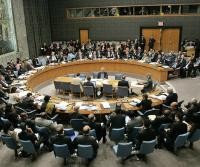
This Thursday, the United Nations Security Council will hold a special session on preventive diplomacy — the art of averting imminent wars, coups and massacres. The event will be attended by heads of state and foreign ministers, currently gathering in New York for the annual opening of the General Assembly. Their minds will almost certainly be elsewhere, as the Palestinian drive for recognition as a state is completely dominating U.N. diplomacy. So the Security Council session is unlikely to generate anything more than well-aged truisms: Prevention is better than reaction; diplomacy is better than force, and so on. Nevertheless, even […]
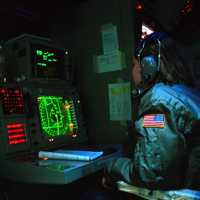
Ten years ago, the concept of “network-centric warfare” dominated U.S. military thinking and deployment. An outgrowth of work associated with the Revolution in Military Affairs, network-centric warfare envisioned a battle space in which information dominance and standoff killing power gave the U.S. military supremacy across the combat spectrum. Influential in doctrine and acquisitions, network-centric warfare offered the tempting promise of eliminating Carl von Clausewitz’ fog of war, making the battlefield legible and, for well-prepared U.S. forces, malleable. Platforms such as the Navy’s Littoral Combat Ship and DDG-1000, the Army’s Future Combat System, and the F-35 multirole combat aircraft were envisioned […]
The war in Libya and the recently increased activities of three Africa-based Islamist groups have raised questions about whether Africom — the U.S. military command created to oversee U.S. military operations in Africa — may be shifting from its initial posture of projecting soft power to one of managing a hot theater. However, according to Jennifer G. Cooke, who directs the Africa Program at the Center for Strategic International Studies in Washington, while Africom’s public affairs posture may now be in flux, the command’s core mission of growing African capabilities to meet African security challenges has not changed. Cooke reminded […]
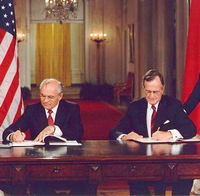
Thanks to the Sept. 11 terrorist attacks and the wars they spawned, many people around the world think they’re living through the most dangerous, violent and strategically uncertain period in human history. Well, that simply isn’t true, as the most recent Human Security Report from Canada’s Simon Fraser University makes clear. Entitled, “The Causes of Peace and the Shrinking Costs of War,” the 2009-2010 edition of the annual report marshals a ton of solid data that proves our world is less violent than ever and that it has “become far less insecure over the past 20 years.” The major failing […]
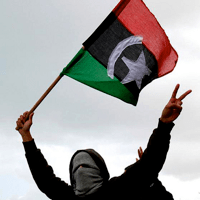
In the aftermath of the Libya operation, my Naval War College colleague Tom Nichols concluded bluntly, “Humanitarian interventions are here to stay and are going to be driven more by moral calculation and military opportunity than by ‘national interest.’” This, it seems, is the new American foreign policy consensus; despite the costly U.S. wars in Iraq and Afghanistan, the anti-interventionist coalition has lost the policy debate. The current fiscal crisis may trim back the scale and scope of future interventions, but will not eliminate them altogether from the U.S. policy toolbox. Even with its fiscal constraints, the United States will […]
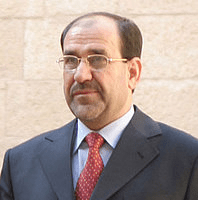
It wasn’t very long ago when American interest in the Middle East focused with piercing intensity on the minutest of developments in Iraq. Over time, however, the gradual drawdown of U.S. forces, the uprisings in the Middle East and public exhaustion with the draining American misadventure in Mesopotamia conspired to take Baghdad out of the headlines. That is about to change. The coming months will bring Iraq back to the foreground. A number of crucial events and opposing forces are now converging, and they will determine whether Iraq, the country Americans spent so much blood and treasure to turn into […]
Former Guatemalan Army Gen. Otto Perez Molina has emerged as the victor in the first round of the country’s presidential election. He will now go into a November runoff election against business leader and populist Manuel Baldizon, who won 23 percent of the vote Sunday. But the fact that Perez carried 36 percent in the initial round may be a better indicator than any of how eager Guatemalan voters are to begin using the military to combat rampant drug crime in the country. “The No. 1 concern in public opinion going into this election is the security situation,” says Cynthia […]
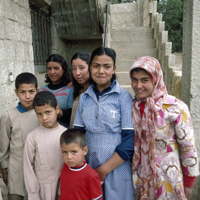
A United Nations vote on statehood for Palestine will not determine whether and how a Palestinian state is established and recognized. That will be determined predominantly by the political realities dividing and linking Israel and Palestine. However, regional and global factors may influence the timing and shape of the forthcoming Palestinian state, the extent to which its prospects for peace and prosperity are enhanced and the basis on which its relations with surrounding states are put in place. Since one important area in which exogenous factors may be as important as internal factors in Palestine and Israel is refugee return, […]
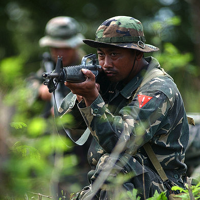
In February 2002, U.S. Special Forces arrived in southern Philippines, hot on the trail of various Islamic organizations that had taken sanctuary in Mindanao — including some that had allegedly relocated there from Afghanistan after the 2001 U.S. invasion. The 2002 deployment marked the opening of the so-called Second Front in the Global War on Terror, which would go on to include Indonesia. A decade later, assessing the results of America’s post-Sept. 11 involvement in the region depends on which perspective one examines it through. The U.S. response, though multifaceted, has been largely characterized by its support for the Philippine […]
